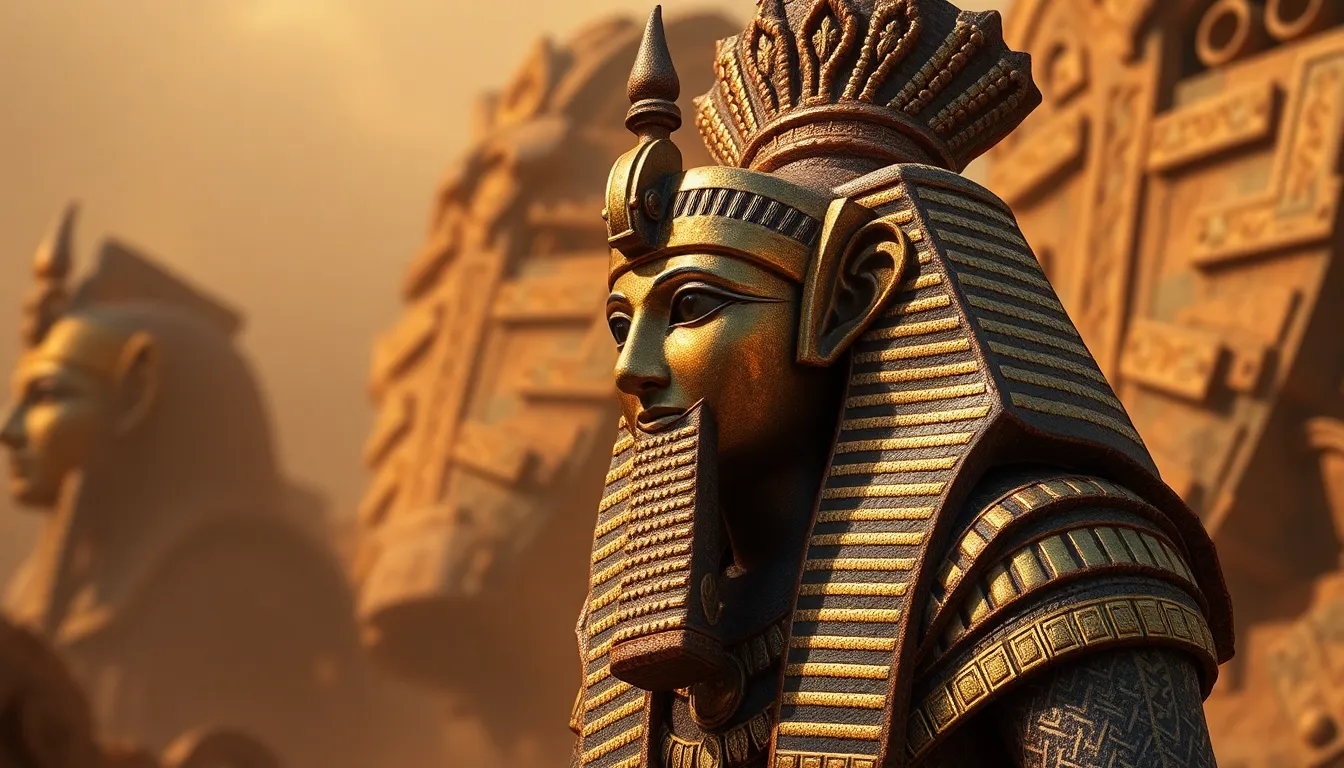The Myths of Pharaoh Merneptah’s Legacy in Warfare
I. Introduction
Pharaoh Merneptah ruled Egypt from 1213 to 1203 BCE and is often remembered as a notable figure in Ancient Egyptian history, particularly in the context of warfare. His reign is significant for various reasons, including the military campaigns he purportedly led against external threats. However, the narratives surrounding Merneptah’s military achievements are often shrouded in myth and exaggeration. This article aims to debunk the myths surrounding Merneptah’s military legacy and provide a more nuanced understanding of his reign.
II. Historical Context of Merneptah’s Reign
The political landscape of Egypt during Merneptah’s reign was complex and fraught with challenges. Following the long and prosperous rule of his father, Ramses II, Merneptah took the throne at a time when Egypt faced external pressures from neighboring regions.
- Political Landscape: Egypt was experiencing internal strife and external threats, particularly from the Sea Peoples and other regional powers.
- Key Events: Merneptah ascended to the throne after a significant period of stability, but his reign quickly became marked by military confrontations.
- Previous Pharaohs: Pharaohs like Ramses II had established strong military traditions, setting high expectations for their successors.
III. The Myth of Merneptah as a Great Warrior
One of the most prominent myths surrounding Merneptah is that of his prowess as a great warrior. Historical records depict him as a military leader of considerable skill; however, a closer analysis reveals a more complicated picture.
- Historical Records: While inscriptions claim that Merneptah led successful campaigns, they often reflect the political agenda of his time rather than objective history.
- Comparative Analysis: When compared to the military campaigns of other Pharaohs, such as Ramses II, the accounts of Merneptah’s achievements appear less impressive.
- Exaggerations: Many of the inscriptions celebrating Merneptah’s victories are likely exaggerated, serving more as propaganda than as factual accounts.
IV. The Battle Against the Sea Peoples
The Sea Peoples were a confederation of naval raiders who posed a significant threat to several ancient civilizations during the late Bronze Age. Merneptah’s encounters with them are often heralded as major victories in his military career.
- Significance of the Sea Peoples: They are believed to have contributed to the collapse of several ancient states, making their interactions with Egypt crucial to understanding the period.
- The Battle of the Delta: This battle is famously depicted in inscriptions; however, the outcomes were less clear-cut than portrayed.
- Debunking the Myth: The claim of a decisive victory over the Sea Peoples is often overstated, with evidence suggesting a more defensive posture from Merneptah’s army.
V. Misinterpretation of the Merneptah Stele
The Merneptah Stele is one of the most important artifacts from Merneptah’s reign, yet its inscriptions have been subject to misinterpretation that impacts our understanding of his legacy.
- Analysis of the Stele: The inscriptions boast about victories, including claims regarding the defeat of Israel, which have been debated by scholars.
- Shaping Legacy: The stele played a crucial role in shaping Merneptah’s legacy as a military leader, despite the questionable accuracy of its claims.
- Clarifying Misconceptions: Many interpretations of the stele lack nuance, failing to consider the context in which it was created.
VI. The Role of Propaganda in Ancient Warfare
Propaganda played a vital role in shaping the public perception of Pharaohs and their military endeavors. Understanding this aspect is crucial for analyzing Merneptah’s legacy.
- Purpose of Propaganda: Propaganda was used to bolster the Pharaoh’s image, create a sense of national pride, and justify military actions.
- Crafting Legacy: Merneptah’s military successes were inevitably embellished through art and inscriptions to reinforce his standing as a strong leader.
- Impact on Narratives: This manipulation of narrative has lasting effects, influencing how historians and the public perceive Merneptah today.
VII. Legacy of Merneptah in Modern Scholarship
In recent years, historians and archaeologists have revisited Merneptah’s military legacy, leading to a more critical examination of his role in Ancient Egyptian history.
- Interpretations: Scholars have increasingly sought to separate fact from fiction in Merneptah’s legacy, emphasizing the need for critical analysis.
- Evolving Narrative: The narrative surrounding Merneptah has evolved, reflecting changing perspectives in Egyptology.
- Current Debates: Ongoing controversies highlight the complexities of interpreting inscriptions and the broader implications for our understanding of Ancient Egypt.
VIII. Conclusion
In summary, the myths surrounding Pharaoh Merneptah’s military legacy reveal the complexities of historical interpretation and the role of propaganda in shaping perceptions of Ancient leaders. By critically analyzing the available evidence, we can better understand the true impact of Merneptah in the context of Ancient Egyptian warfare.
As we continue to explore the history of Pharaohs like Merneptah, it is essential to approach their legacies with a discerning eye, recognizing that the stories told about them often reflect the cultural and political needs of their times rather than objective historical truths.
https://www.youtube.com/watch?v=iNNDzptouKY




